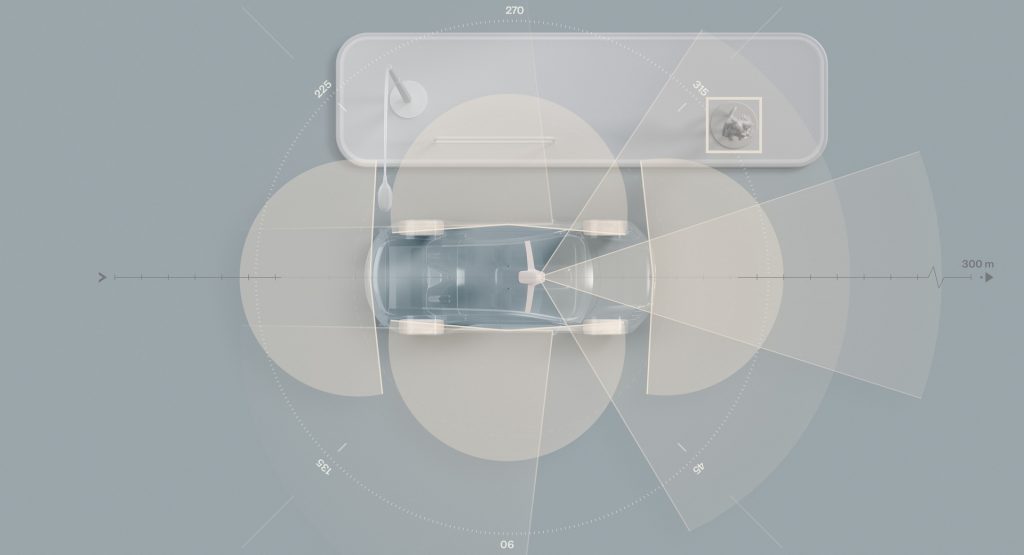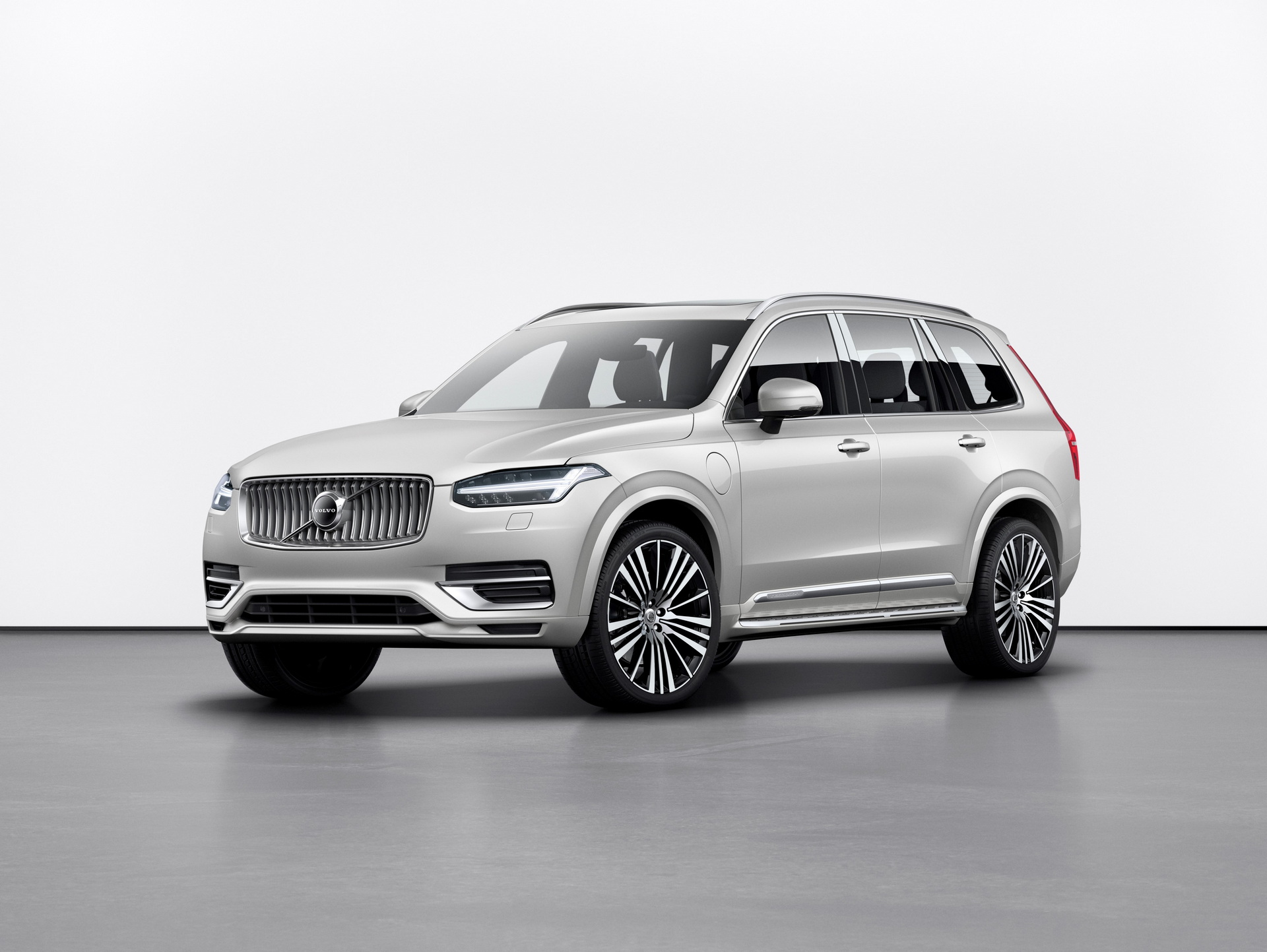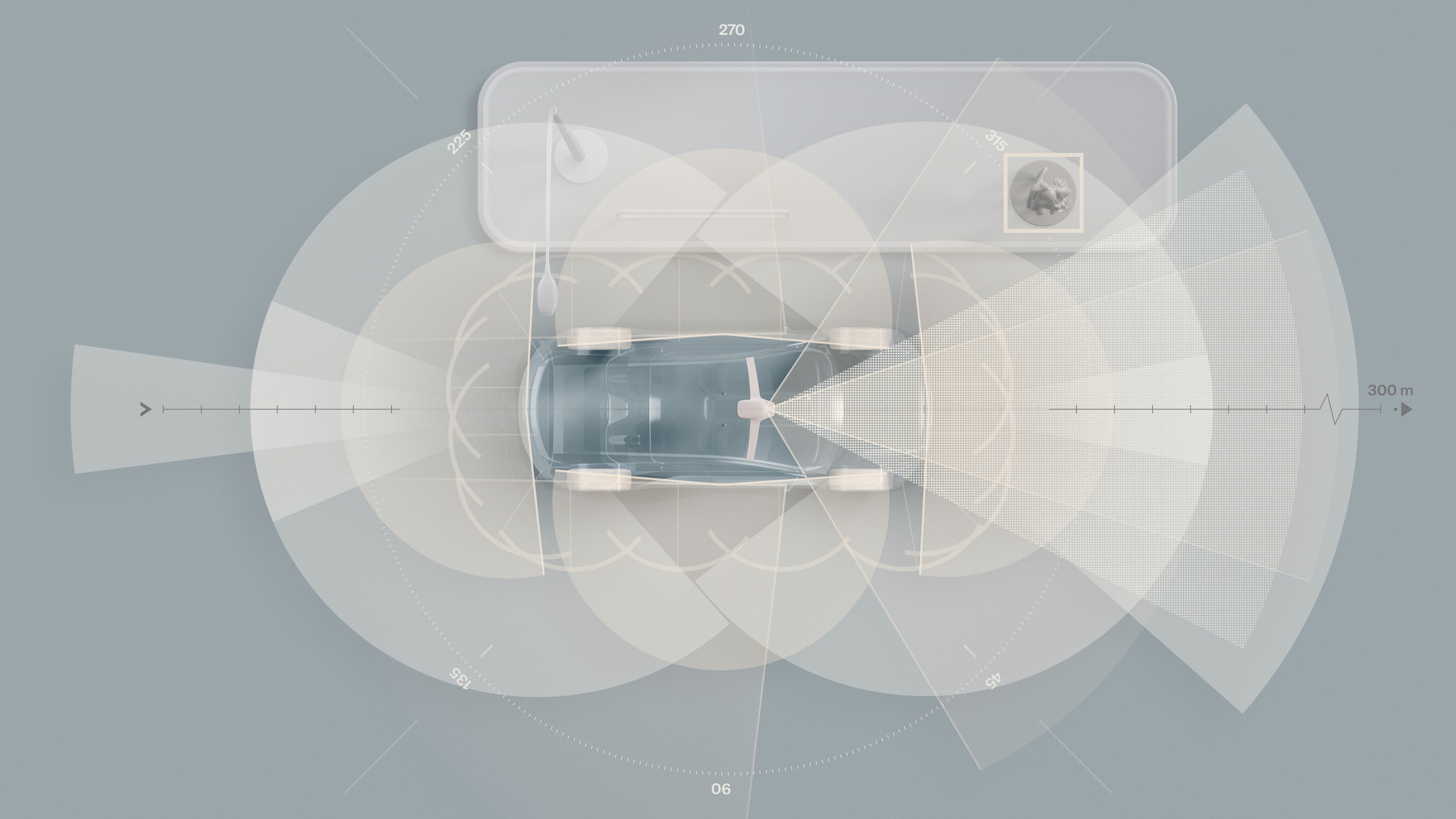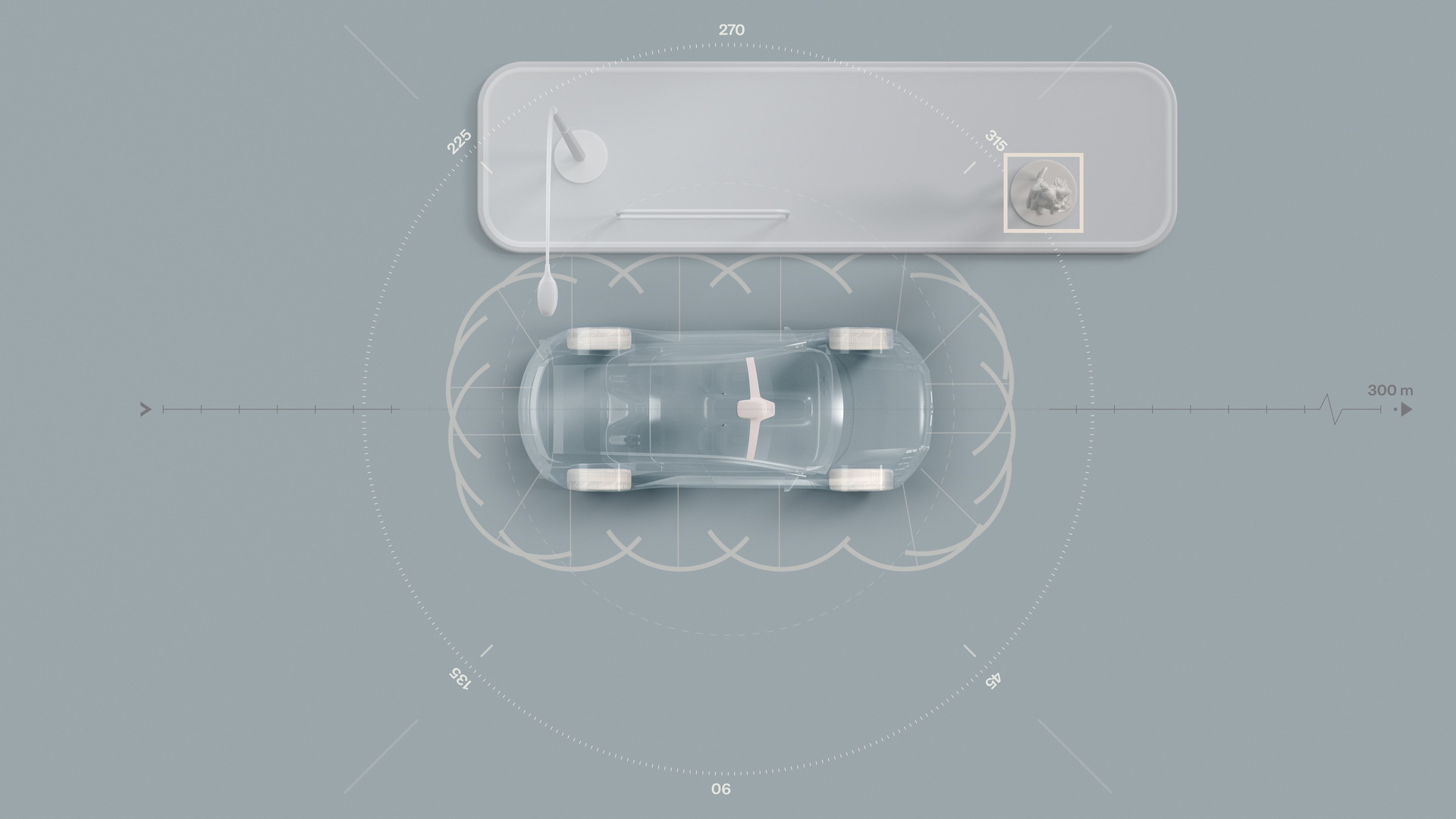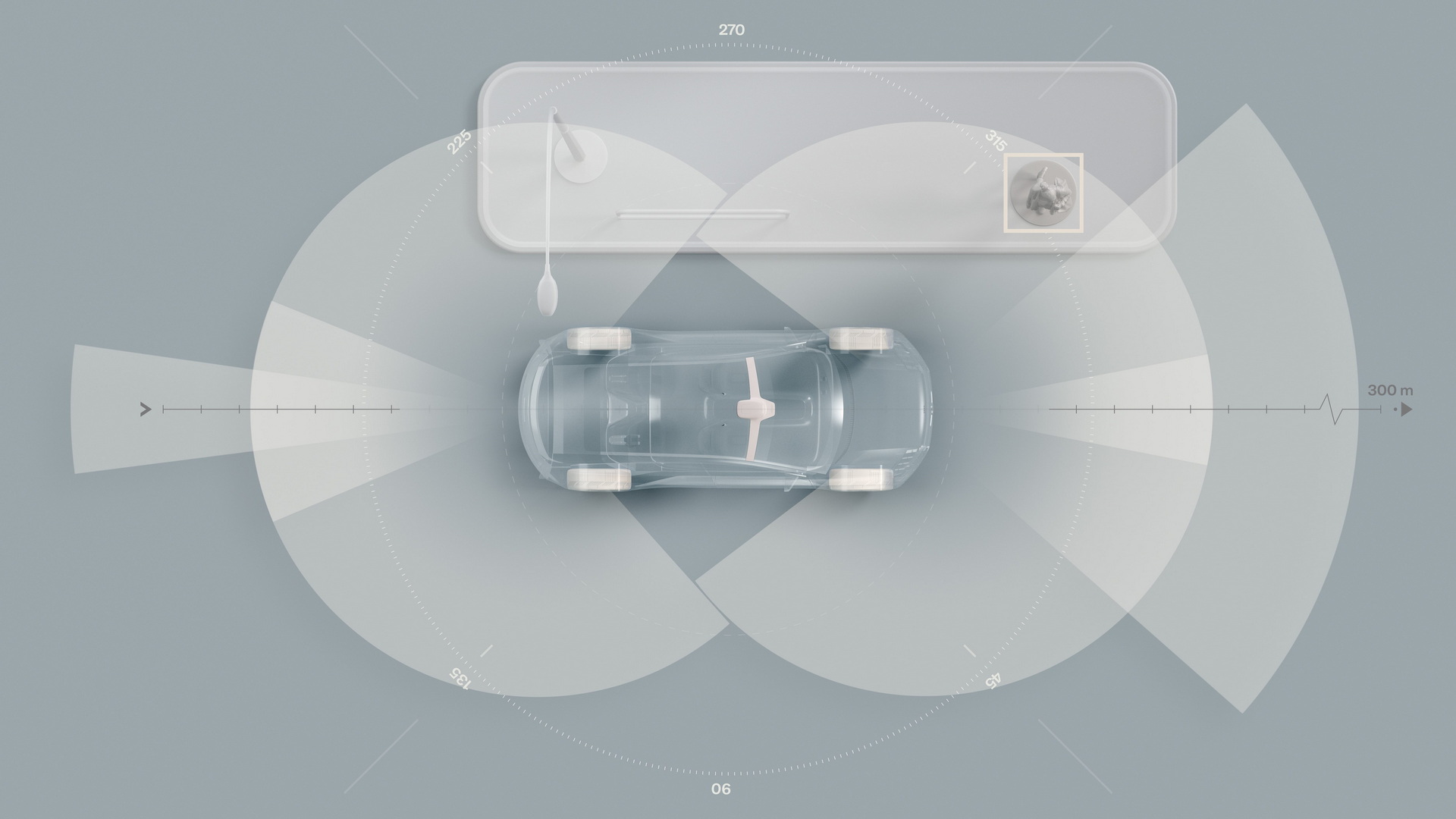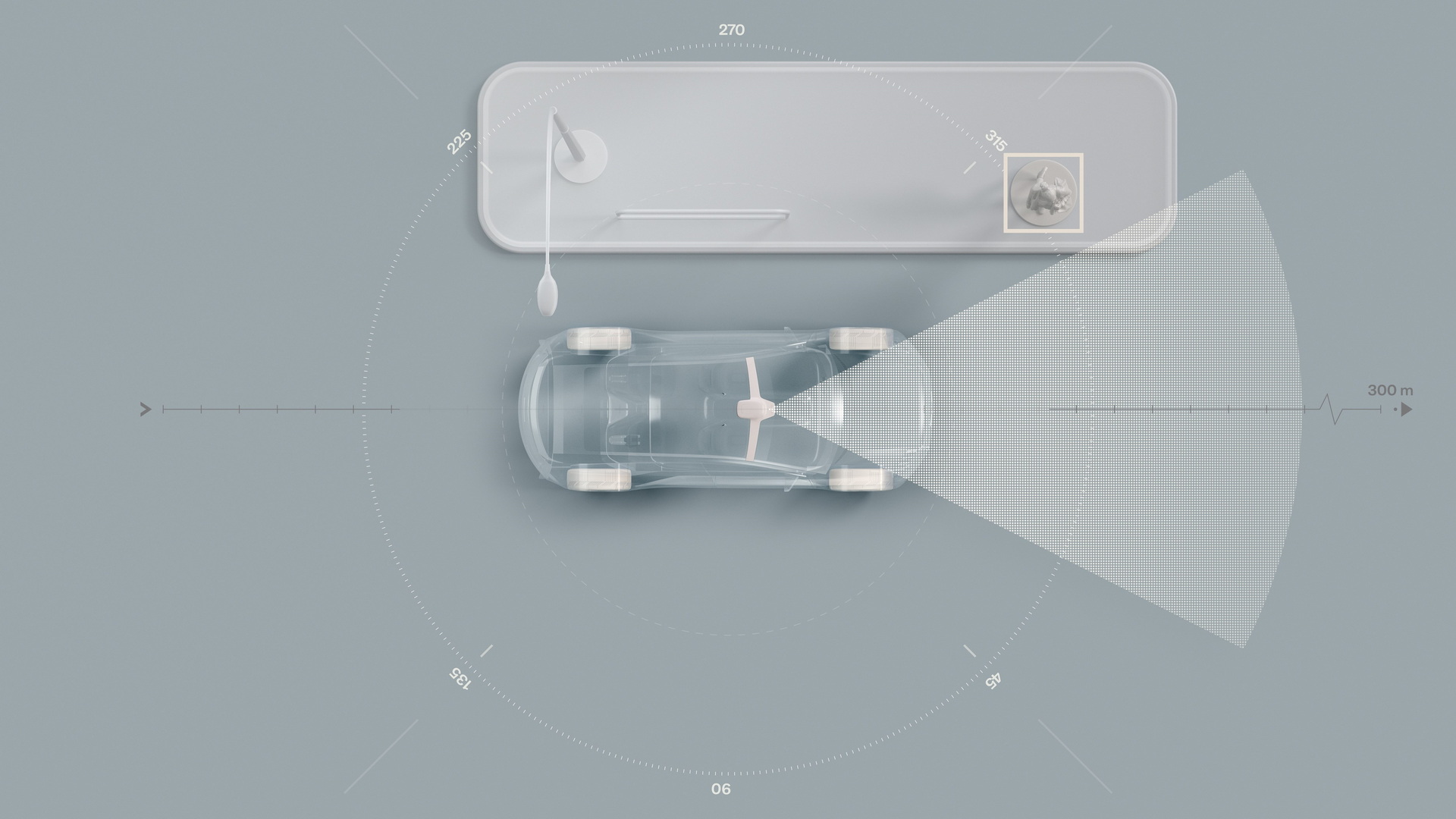Volvo’s upcoming fully electric SUV will have LiDAR sensors and an AI-driven supercomputer as standard, the company announced today. The technology is aimed at improving safety technology for the vehicle.
The improvement won’t be a one-time deal, though. Volvo says that the new technology will form the basis of an ever-evolving suite of safety technology that will allow for over-the-air updates to advanced driver aids.
The electric SUV, the follow-up to the well-loved XC90, will come with LiDAR sensors developed by Luminar as well as a computer capable of autonomous driving powered by the NVIDIA DRIVE Orin system as standard. These will allow Volvo to build in better driver aids and improve them over time.
Read Also: Volvo XC90 To Be Used By Didi’s Autonomous Vehicle Test Fleet
“Volvo Cars is and always has been a leader in safety. It will now define the next level of car safety,” said Håkan Samuelsson, Volvo CEO. “By having this hardware as standard, we can continuously improve safety features over the air and introduce advanced autonomous drive systems, reinforcing our leadership in safety.”
The automaker says that it is specifically working on safety technology that will address scenarios in which severe injuries and fatalities are still prevalent today. That means that the technology will increasingly intervene when collisions are imminent.
As a result of the standard safety technology, Volvo will also be able to offer optional driver aids, like Highway Pilot. This feature, like Cadillac Super Cruise or Ford BlueCruise, will allow the vehicle to take over some driving duties on some highways (when conditions allow for it).
The electric vehicle in which all of this technology will premiere is due to be revealed in 2022, the automaker says.




